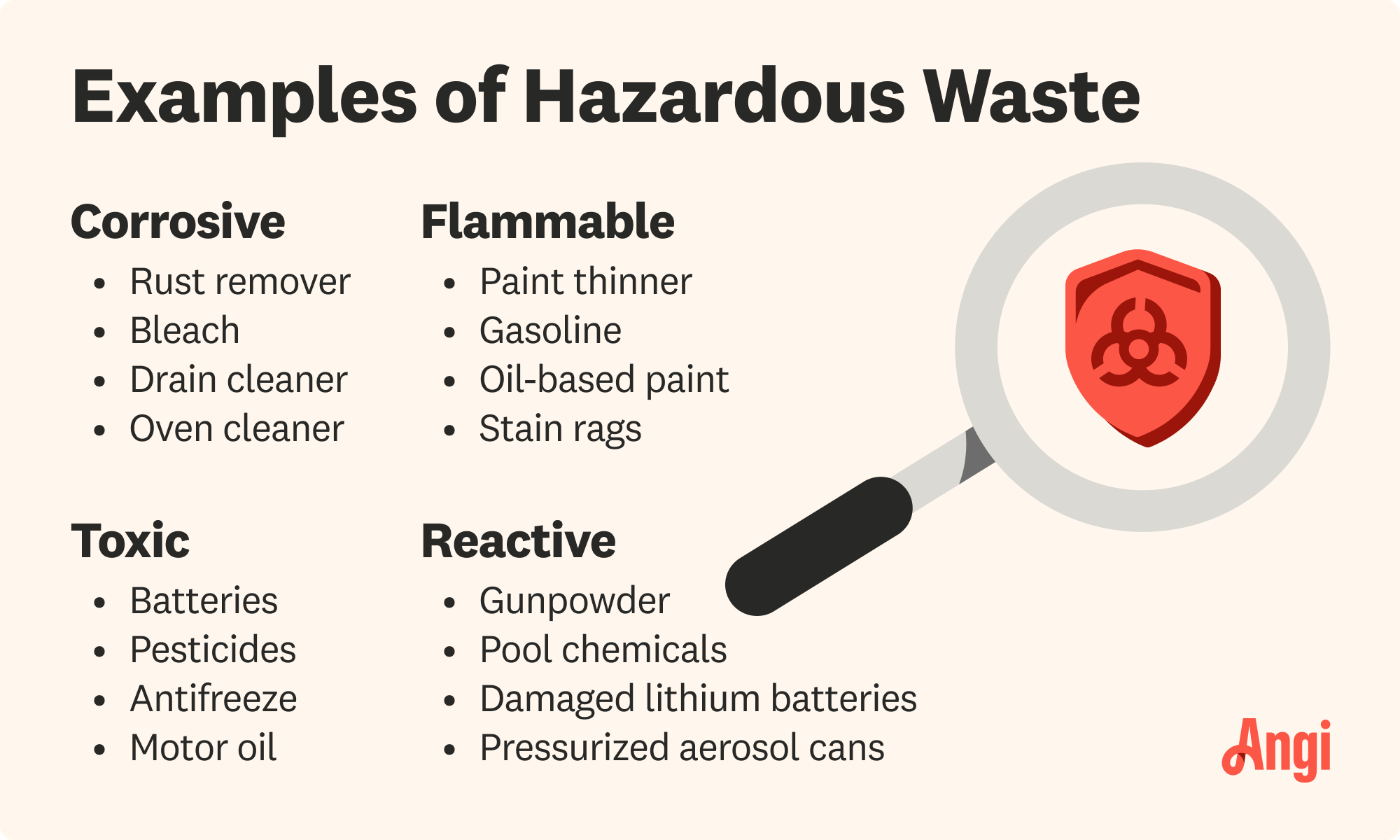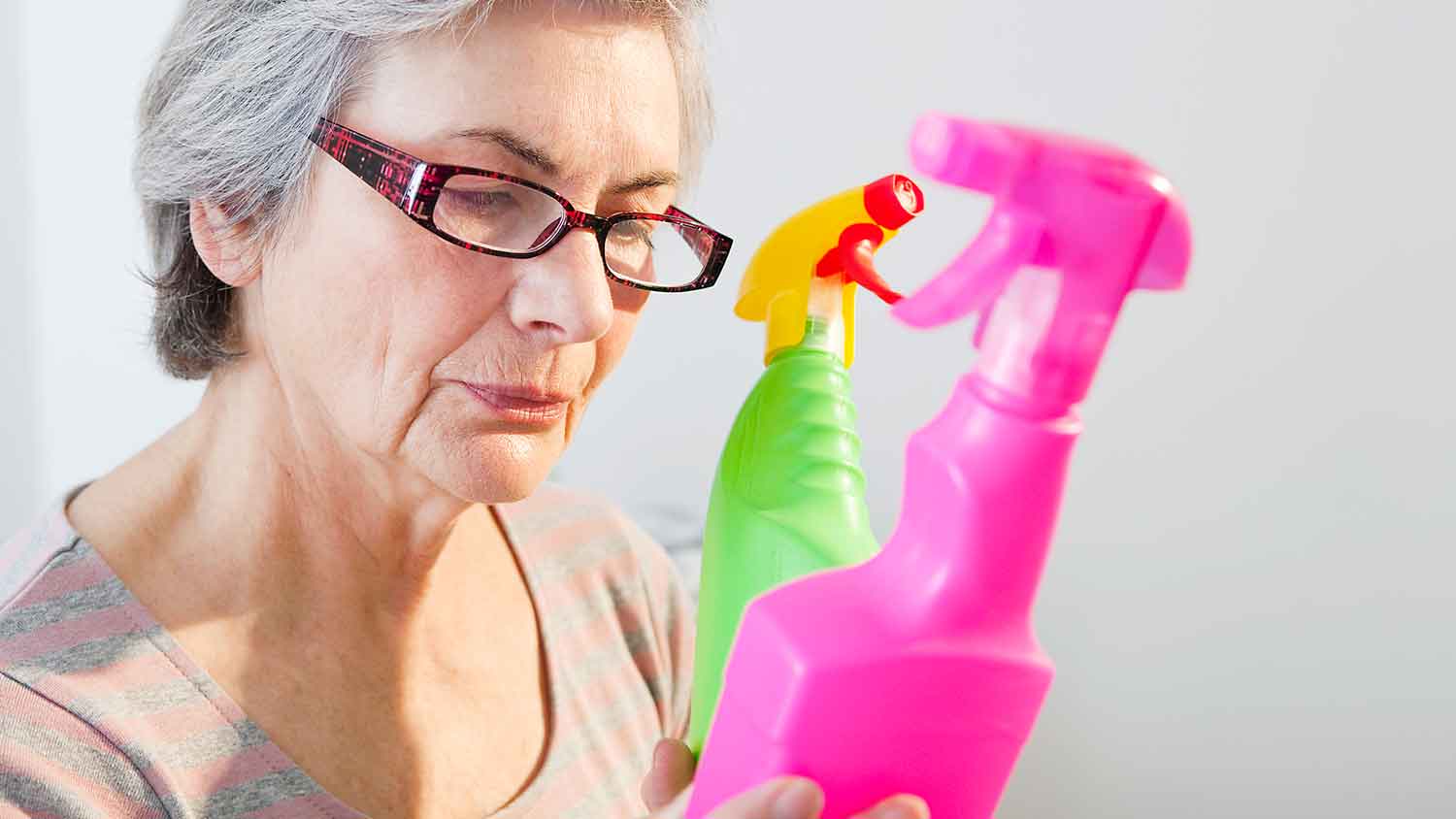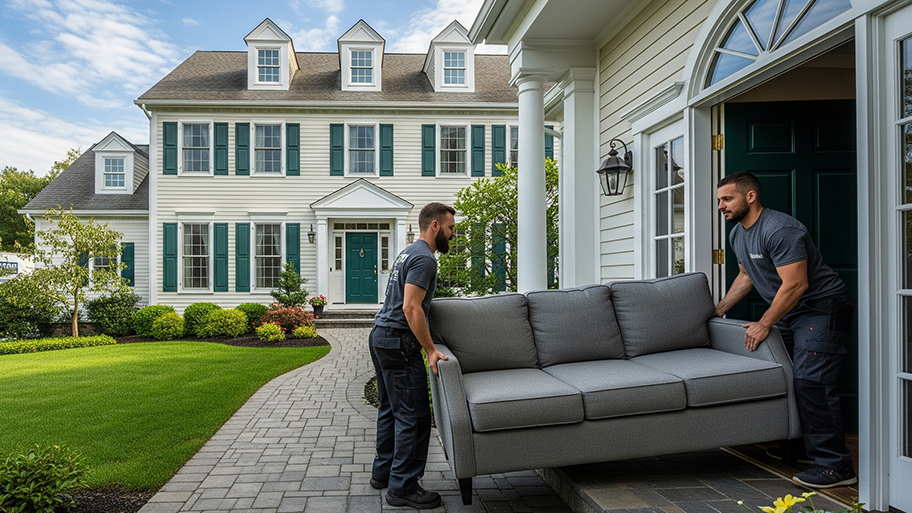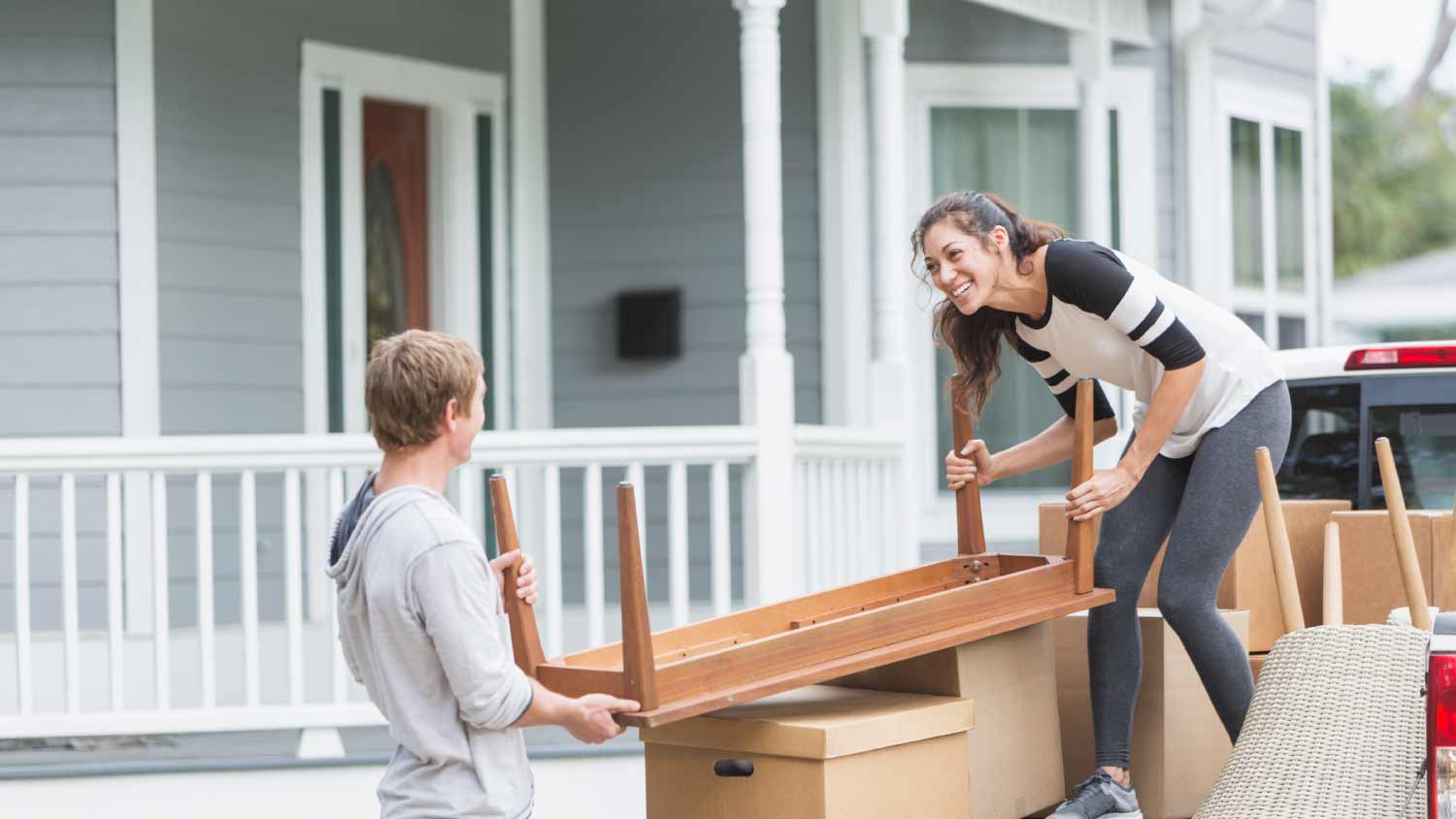
Removing a hot tub costs an average of $400. Learn what factors affect hot tub removal costs, including size, type of hot tub, and disposal method.
Hint: Don’t pour anything down the drain


In the everlasting quest for a clean and tidy home, it’s only natural that you’ll come across something you’re not sure how to throw away. Maybe it’s some old batteries, a broken cell phone, that near-empty can of paint, or a long-expired cleaning solution. These are all classified as hazardous waste, which means you can’t just toss them out with your regular trash. There are specific methods around how to dispose of household hazardous waste to ensure it’s done safely and won’t harm the environment.

The Environmental Protection Agency (EPA) considers any household product that could catch fire, react, or explode under certain circumstances to be household hazardous waste. That also includes toxic, corrosive products, or hazardous ingredients (keep an eye on products you buy at the hardware store for a scary-looking safety label).
If you dispose of household hazardous waste with your regular trash, pour it down a drain, or just leave it on the street, you’re creating a threat to public health, utility systems, sanitation workers, and any children or animals that could come across it. These substances also risk polluting the environment and chances are, you’re trying to reduce your environmental footprint rather than increase it.

If you don’t have enough HHW to justify the cost of renting a dumpster or junk removal costs, here are some basic ground rules you should run through before attempting to dispose of anything hazardous, plus specifics for the most common types of waste.
Most household hazardous waste comes with instructions not just for using the product but getting rid of it, too. Make sure to follow all the instructions provided to you by the manufacturer to reduce the risk of the product exploding, leaking, or mixing with other chemicals, whether it’s in your home or on its way to the proper facility.
Search online, call the nearest waste management facility, or ask around your area to see who would be best to talk to about how to dispose of household hazardous waste. Your community likely has an environmental health or waste agency that can provide information.
If you’re lucky, there’s a year-round collection system or location to take it to, or at least some days designated for the collection of household hazardous waste in your area. If not, you could call a local waste removal service for help.
The EPA estimates that 75% of the country’s waste could be recycled, but less than one-third of it gets there. Don’t let your household hazardous waste be part of that statistic if it’s in a condition that could be reused or recycled. See if you can donate it to someone in need.
If you’re not sure where to go to donate or recycle your household hazardous waste, use Earth 911 by typing in the kind of waste you’re researching, plus your zip code.

Chances are you’ve got at least one of these items in your home, ready to be sent off to its final resting place.
Batteries are definitely the most common form of household hazardous waste. Even at their smallest size, they come with a combination of chemicals and heavy metals that could be very dangerous if released into the environment.
It’s best to store your used batteries until it’s time for their safe collection via your local household hazardous waste program or at a local battery recycling program. Always be sure to tape the ends of batteries so that if a metal object (or another battery) comes into contact with them, there is no chance of a short circuit.
Most pharmacies have programs for accepting used, expired, or unnecessary medications so they can be disposed of safely. If that isn’t an option, dispose of the meds by following the steps below.
Put the medicine in a hard container, like a laundry detergent bottle.
Add a small amount of cola to dissolve the medicine.
Add a thickening agent like cat litter, flour, salt, coffee grounds, or charcoal.
If you have mustard seed or turmeric, throw it in to discourage wildlife and young children from ingesting it.
Seal up the container with duct tape and place it in the trash right before pickup so it isn’t sitting there long.
It’s never safe to flush medication down the toilet. This can harm the bacteria we need in waste and septic systems and may not get filtered by a treatment facility, which means it can get into local waterways and affect the environment and wildlife.
Many automotive products can be stored for a long time or donated. You may be able to take motor oil, brake and transmission fluid, car batteries, diesel fuel, or antifreeze to an auto shop or garage. Many states require the businesses that sell these products to accept them for recycling. It depends on your local policies, which can be found online or by calling your local government office.
If recycling isn’t an option, include automotive products in your local household hazardous waste dropoff or collection. Never mix them with other products or pour them down drains where they could seep into the waste system, soil, or groundwater.
While some people have too many electronics, many organizations are in desperate need of them. Find out if a local school, nursing home, family shelter, or another organization could use that old television, computer, or phone as a donation. Some states and nonprofits provide free electronics recycling, so be sure to check online through the Environmental Protection Agency for your closest options.
If all else fails, include electronics in your household hazardous waste collection or drop-off.
Hazardous waste disposal costs range from $150 to $300 on average. You could pay as little as $75 to dispose of common items like old paint cans or up to $500 to dispose of large quantities of waste or dangerous chemicals. The biggest cost factors are the weight, quantity, and type of hazardous waste.
Homeowners can DIY disposal of regular waste or recycling. However, we do not recommend disposing of hazardous waste items yourself. Hiring a professional waste removal service near you ensures hazardous materials are handled and disposed of properly to avoid health risks and environmental damage.
It is illegal to dispose of hazardous waste yourself in some states and municipalities, and there are specific regulations for hazardous waste disposal that professionals are trained to comply with. Hiring a pro can help you avoid potential fines or other legal consequences.
From average costs to expert advice, get all the answers you need to get your job done.

Removing a hot tub costs an average of $400. Learn what factors affect hot tub removal costs, including size, type of hot tub, and disposal method.

Furniture removal costs depend on the type, size, and location of items. Learn the average cost of furniture removal to free up room in your home.

Junk removal costs depend on the volume and type of waste you need removed, but paying a professional saves you time and energy over hauling it yourself.

Getting rid of old concrete can be challenging, but you can tackle it with the right tools and methods. Learn how to break up concrete and remove it.

Knowing how to dispose of a piano is a vital part of reclaiming space the instrument may have taken up. This guide will help point you in the right direction.

When disposing of a refrigerator, it is important to take the necessary steps to separate, drain and haul the appliance.